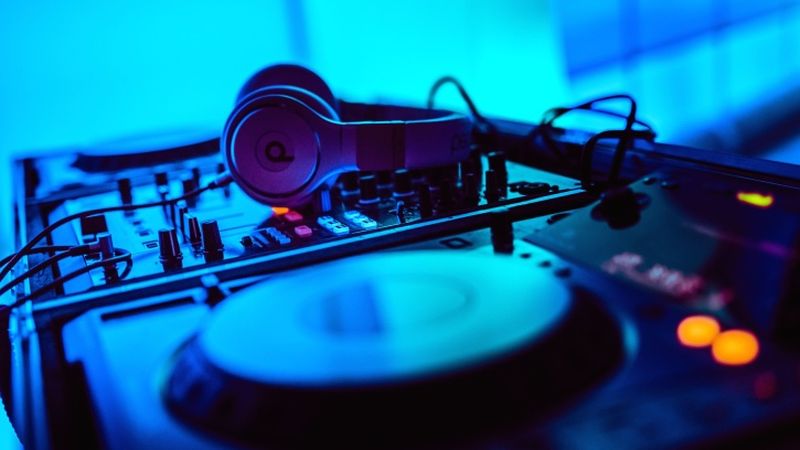Hip-Hop’s Tradition of Opposing State Destruction

Known for fast rhymes, sick beats, and a notorious East Coast-West Coast rivalry, hip-hop music has provided a platform for MCs and rappers to voice their opinions for decades.
Since its inception in the 1970s, hip-hop has used music to highlight issues such as the war on drugs, police brutality, poverty, and the treatment of minorities in the United States.
Criticized by parents and politicians, the most prominent feature of hip-hop culture—rap—is a storytelling tool that has historically acknowledged state destruction. Anti-police-brutality lyrics appeared most noticeably in the late 1980s and early 1990s. Many artists described the police harassment, racial profiling, and brutality that plagued inner-city neighborhoods across the country.
The Trailblazers
Released in 1988, N.W.A.’s Straight Outta Compton was inspired by the groups’ real-life experiences of excessive policing and racism. They were largely driven to make music that reflected the negative feelings towards law enforcement surrounding the Rodney King beating and Los Angeles riots.
“Got it bad ’cause I’m brown,” they rapped. “And not the other color so police think they have the authority to kill a minority.”
“They gave voice to unheard stories from the West Coast,” says hip-hop historian, activist, and radio DJ Davey D.
He believes that N.W.A. and Ice Cube’s later music conveyed “real themes from their lived experiences that black audiences around the country could relate to.”
Legendary rapper Tupac Shakur, or 2Pac, used his music in the 1990s to confront racist cops, under-reported socioeconomic epidemics, and government censorship.
In 1992, Ronald Ray Howard was charged with killing state trooper Bill Davidson. When police discovered a copy of 2Pac’s debut album, 2Pacalypse Now in the trunk of Howard’s car, 2Pac found himself facing opposition that included Vice President Dan Quayle.
The song Souljah’s Story featured the lyrics: “Cops on my tail, so I bail ’til I dodge ’em. They finally pull me over and I laugh ”Remember Rodney King?” and I blast on his punk a**. Now I got a murder case.”
Both Quayle and Davidson’s widow sought to hold 2Pac and Interscope Records, his label, directly liable for the killing of the state trooper. The former vice president even attempted to pull the album. “Once again we’re faced with an irresponsible corporate act,” he said. “There is absolutely no reason for a record like this to be published by a responsible corporation.… I am suggesting that the Time Warner subsidiary Interscope Records withdraw this record. It has no place in our society.”
Frustrated, 2Pac responded with what is arguably one of the most ingenious pseudo-diss tracks of all time. Using an audio sample of the former vice president’s remarks, 2Pac explains that he is not responsible for the violence in American society. “I diagnosed it,” he said.
The messages moving to the late 1990s and early 2000s remained just as political, but faced harsher criticism and threats of censorship from lawmakers and the Federal Communications Commission (FCC).
Marshall Mathers—known best by his stage name Eminem or Slim Shady—is a hip-hop legend whose music was largely inspired by his rough upbringing in Detroit. His often angry and violent anti-government music has been the whipping post of Congress, the FCC, and parents since he first broke into the mainstream music industry in 1999. In 2001, he was the subject of a congressional hearing about warning labels on CD covers for explicit lyrics.
“When you hear the words about raping your mother or killing your mother, I think that the industry should be embarrassed that that’s award-winning entertainment,” said Rep. Barbara Cubin (R-WY).
Ten Grammy wins and over 40 nominations later, Eminem has spent his career standing up for free speech in and out of the studio. When asked if he felt a sense of responsibility for the actions of children after listening to his music in a 2011 interview with Anderson Cooper, his response was simple: “It’s your job to parent them. If you’re a parent, be a parent … This is music; this is my art; this is what I do.”
Using Their Influence
Today, hip-hop is more widely accepted in the mainstream music industry than it was 45 years ago. Themes like police brutality and racial profiling are still common, and artists are gaining national and even global recognition for their contributions to the conversations and policies surrounding these issues.
This year, Kendrick Lamar became the first rapper to win the Pulitzer Prize since the Pulitzers expanded to music in 1943. He is also the first winner who is not a classical or jazz musician.
His winning album DAMN. tackles problems like poverty and police brutality, and has become the de facto anthem of the Black Lives Matter movement. “And we hate po-po,” he raps in Alright. “Wanna kill us dead in the street fo sho.”
On a June 29, 2015, segment of Fox News, host Geraldo Rivera criticized Alright, arguing that “hip-hop has done more damage to young African Americans than racism in recent years.”
Lamar responded by saying that “hip-hop is not the problem. Our reality is the problem.”
Rapper Meek Mill knows from experience how mass incarceration affects minorities in the United States. The “Free Meek” movement was created with the goal of getting Meek Mill exonerated after he was sentenced to two to four years in prison for a parole violation.
Artists Beyoncé, Jay-Z, and Rick Ross lent their voices and resources to the cause, while Pennsylvania Governor Tom Wolf and Philadelphia Sixers owner Michael Rubin stepped in to use their influence to help bring about Meek’s release. Now a free man, he’s working to bring change in the criminal-justice system.
“I was just spending time incarcerated with men where out of 100, probably 15 of them aren’t supposed to be there … 15 of them have been kidnapped from their families, locked in rooms, shackled from ankle to feet and eating food we wouldn’t give to our dogs because of wrongful convictions and injustices,” he said in an interview.
Snoop Dogg, Jay Z, and Kim Kardashian West—the wife of rapper Kanye West—are becoming known as some of the hip-hop figures publicly against the war on drugs. In a collaborative video narrated by Jay Z, he and Snoop Dogg map the devastation caused by the war on drugs and raise important questions about economic equity in the emerging above-ground marijuana industry. Kim Kardashian West has also been heavily lobbying the Trump administration to release a great-grandmother from prison who unjustly received a life imprisonment sentence because of a non-violent drug-related offense in the 1990s.
Dozens of hip-hop stars joined forces to donate money and bottled water to help the people of Flint, Michigan, when the government wouldn’t. MC Big Sean raised $100,000 for Flint after the ongoing water crisis left citizens without clean water.
“That situation wasn’t a natural disaster. It’s something that should’ve been prevented and could’ve been prevented, so it’s just disgusting to think about the damages that these families and even kids have to go through with the lead poisoning,” he told Rolling Stone.
Although fans and critics alike have argued whether hip-hop has the power to change the world, it’s evident that the genre has helped gradually shift cultural and political attitudes in the United States, especially among young people. I know that I would not have been inspired to become an advocate for personal freedom, free-market principles, and the First Amendment without discovering hip-hop on MTV in the early 2000s.









